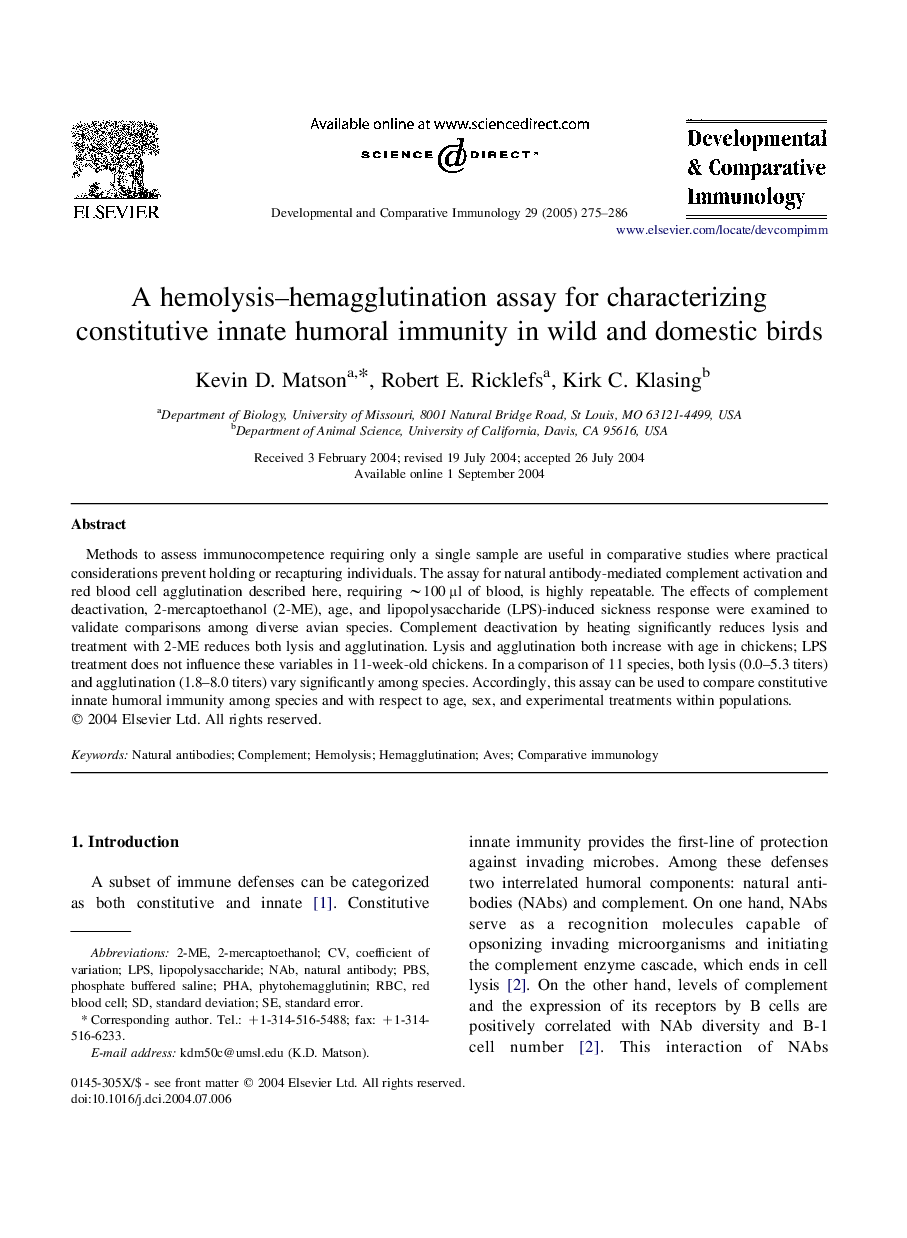| Article ID | Journal | Published Year | Pages | File Type |
|---|---|---|---|---|
| 8978231 | Developmental & Comparative Immunology | 2005 | 12 Pages |
Abstract
Methods to assess immunocompetence requiring only a single sample are useful in comparative studies where practical considerations prevent holding or recapturing individuals. The assay for natural antibody-mediated complement activation and red blood cell agglutination described here, requiring â¼100 μl of blood, is highly repeatable. The effects of complement deactivation, 2-mercaptoethanol (2-ME), age, and lipopolysaccharide (LPS)-induced sickness response were examined to validate comparisons among diverse avian species. Complement deactivation by heating significantly reduces lysis and treatment with 2-ME reduces both lysis and agglutination. Lysis and agglutination both increase with age in chickens; LPS treatment does not influence these variables in 11-week-old chickens. In a comparison of 11 species, both lysis (0.0-5.3 titers) and agglutination (1.8-8.0 titers) vary significantly among species. Accordingly, this assay can be used to compare constitutive innate humoral immunity among species and with respect to age, sex, and experimental treatments within populations.
Keywords
Related Topics
Life Sciences
Biochemistry, Genetics and Molecular Biology
Developmental Biology
Authors
Kevin D. Matson, Robert E. Ricklefs, Kirk C. Klasing,
